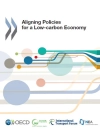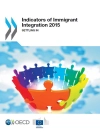The ACADEMY OF INTERNATIONAL BUSINESS (UK and Ireland Chapter)
Published in association with the UK and Ireland Chapter of the Academy of International Business.
This brand new edited collection addresses the growing uncertainty and socio-economic challenges of globalisation and its profound implications for the strategies and operations of multinational enterprises (MNEs). Responding to the new balance in international business, the authors offer valuable insights into the co-evolutionary processes involved in headquarters-subsidiary relationships, the need for novel strategies by MNEs to retain competitive advantage, improve performance and contribute to the global economy.
Inhaltsverzeichnis
Chapter 1. No Longer at Ease in the Old Dispensatation: Reappraising the Role of International Business in the World Economy; Davide Castellani, Rajneesh Narula, Quyen T. K. Nguyen, Irina Surdu and James T. Walker.- Part I. Institutions and International Business Strategy.- Chapter 2. Multinationals, Corporate Social Responsibility and Regional Change in Transition Economies; Javier Revilla Diez and Jöran Wrana.- Chapter 3. International Business and Corporate Wrongdoing: A Review and Research Agenda; Federica Nieri and Elisa Giuliani.- Chapter 4. The Internationalisation of Ventures: The Roles of a Nation’s Institutions and the Venture’s Value Orientation; Jie Chen, Kaisu Puumalainen and Sami Saarenketo.- Part II. Institutions, Emerging Markets and Economic Performance.- Chapter 5. Global Security Risks, Emerging Markets and Firm Responses: Assessing the Impact of Terrorism; Luis Alfonso Dau, Elizabeth M. Moore and Max Abrahms.- Chapter 6. Institutions, Economic Growth and International Competitiveness: A Regional Study; Roseline Wanjiru and Karla Prime.- Chapter 7. The Complementarity of Foreign and Domestic Investment by Emerging Market Multinationals; Pavida Pananond and Alvaro Cuervo-Cazurra.- Part III. HQ-Subsidiaries Relations.- Chapter 8. The Dynamics of Differentiation: The Resource-Bases of Development and the Roles of MNE Subsidiaries; Robert Pearce.- Chapter 9. Unfolding the Intra-organisational Perception Gap in Decision Making; Shasha Zhao, Marina Papanastassiou, Yiannis Bassiakos, Evis Sinani and Robert Pearce.- Chapter 10. Strategy Creativity in Multinational Subsidiaries; Dónal O’Brien, Pamela Sharkey Scott and Ulf Andersson.- Chapter 11. Subsidiary Combinative Capability for Knowledge Creation as a Coevolutionary Development Process; Johanna Clancy, Paul Ryan, Ulf Andersson and Majella Giblin.- Part IV: Location Decisions and MNEs Performance.- Chapter 12. Establishing how MNCs are Defined: A Response to the Regional/Global Debate; Louis Brennan, Lisa Spencer and Jim Stewart.- Chapter 13. Outward FDI From South Korea: The Relationship Between National Investment Position And Location Choice; Jae-Yeon Kim, Nigel Driffield and Jim Love.- Chapter 14. Does It Evidence From Industrial District Firms; Marco Bettiol, Chiara Burlina, Maria Chiarvesio and Eleonora Di Maria.- Chapter 15. Firm Diversification and Financial Performance: Evidence from Manufacturing Firms Worldwide; Jinlong Gu, Yong Yang and Roger Strange.
Über den Autor
Davide Castellani is Professor of International Business at the Henley Business School, University of Reading, UK.
Rajneesh Narula is Professor of International Business Regulation and the John H. Dunning Chair of International Business at the Henley Business School, University of Reading, UK.
Quyen T.K. Nguyen is Associate Professor of International Business and Strategy at the Henley Business School, University of Reading, UK.
Irina Surdu is Lecturer of Strategy and International Business at the Henley Business School, University of Reading, UK.
James T. Walker is Professor of International Business and Head of International Business and Strategy at the Henley Business School, University of Reading, UK.












